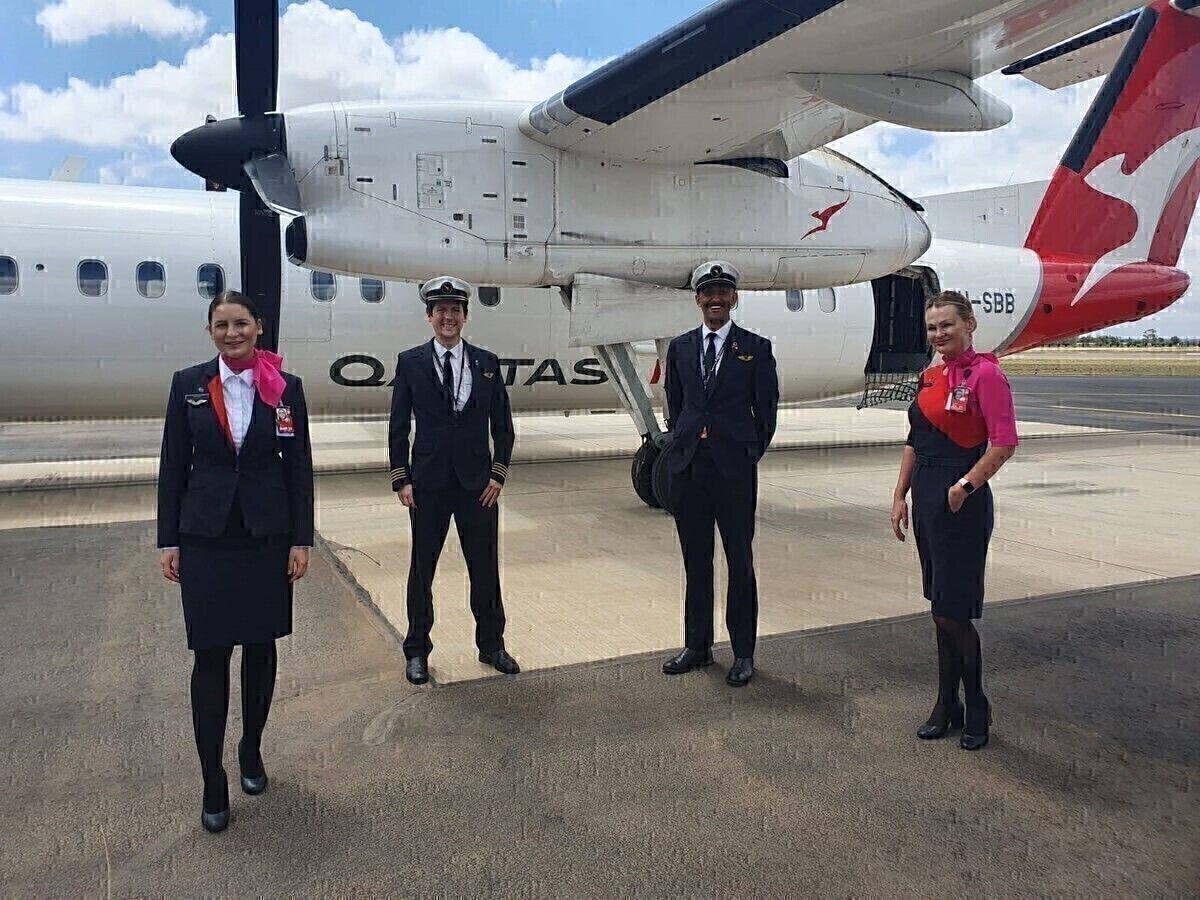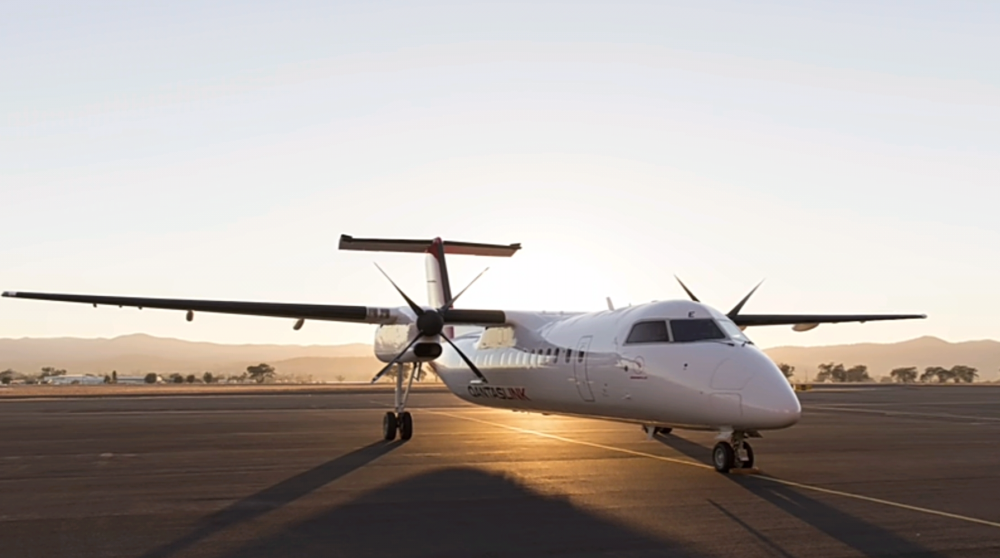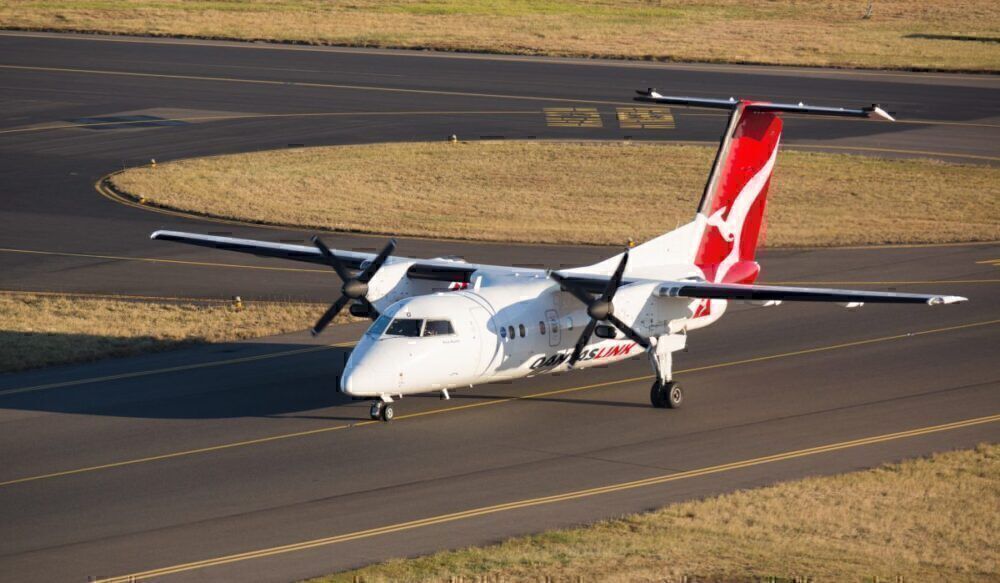Qantas is rolling out flights to several new domestic destinations in early 2021. It continues a renewed interest by Qantas in regional destinations. The new services encroach into several routes regional airline Rex has long enjoyed a monopoly on, sparking a fierce response from the airline.
Seven new Qantas routes including six routes Rex has a monopoly on
The new routes include Sydney - Griffith, Melbourne - Newcastle, Melbourne - Merimbula, Melbourne - Mount Gambier, Melbourne - Wagga Wagga, Melbourne - Albury, and Adelaide - Mount Gambier. Except for Melbourne - Newcastle, Rex has had a monopoly on these routes, including flights to South Australia's second-biggest city, Mount Gambier.
“We’re also pleased to be able to offer locals more choice and competitive fares on these routes, most of which have been monopolies for years,” said QantasLink CEO, John Gissing.
Rex calls the move opportunistic, accusing Qantas of using Australian Government subsidies to finance a strategy that will destroy incumbent regional operators.
"Rex has grave concerns that Qantas is embarking on an opportunistic strategy of flooding the regional airline market with additional excess capacity to eliminate weaker regional competitors," says a Rex media release.
"Rex calls on the Federal (Australian) Government to cease all grants to Qantas if it persists with this opportunistic behavior."
Stay informed: Sign up for our daily aviation news digest.
Strictly competitive or a slapdown for a smaller airline?
With its international business effectively shut down and domestic jet operations under the squeeze from constantly shifting internal border rules, Qantas has this year cast a fresh over intrastate regional flying. The airline has previously announced services to other destinations Rex had to themselves.
Qantas' announcement of the seven new routes could also be seen as a slapdown for Rex after that airline recently got its high-density air operator's certificate to operate jet services on east coast trunk routes. Those trunk routes are usually a rich sure of revenue for Qantas.
“We’ll be promoting these new flights to millions of our frequent flyers across the country in the lead up to the flights commencing next year," said Mr Gissing. Qantas has over 12 million people enrolled in its frequent flyer scheme.
Qantas will progressively launch its new services (which will use QantasLink Dash 8 aircraft) from February 1. The airline has around 50 Dash 8s in its fleet. Approximately one-quarter of those 50 planes sit parked.
“All our aircraft carry fixed costs, regardless of whether they’re grounded or not. We’d rather get as many aircraft back in the air as we can because it’s better for our business, our customers and gets more of our people back to work,” said Mr Gissing.
Airlines enjoy monopolies on most Australian domestic routes
This year has skewed the Australian domestic airline environment. Excluding low-cost subsidiary, Jetstar, Qantas had a 39% domestic market share in 2019. By September 2020, that increased to 75%. That's largely due to Virgin Australia's period in administration. But Rex has also benefited from Virgin's problems, picking up market share on regional routes Virgin Australia axed flights on.
Australia's competition watchdog, the Australian Competition and Consumer Commission (ACCC), says most Australian domestic routes are served by just one airline group. According to the ACCC, about 60% of Australia's domestic airline routes in September were served by just one airline group. Fewer routes are flown in 2020 than 2019. But the proportion of routes without competition has remained much the same. The ACCC says this means airlines on a monopoly route have little incentive to improve performance or lower fares.
Residents of and travelers to regional centers like Mount Gambier will welcome competition if it offers more choice and puts downward pressure on fares. It's a sentiment Qantas will happily harness. Rex, on the other hand, will be less happy. Previously, the airline has decided to quit some routes Qantas has moved onto.
What do you think? Is this competition at work or a cynical move by Qantas to drive out a smaller airline? Post a comment and let us know.



